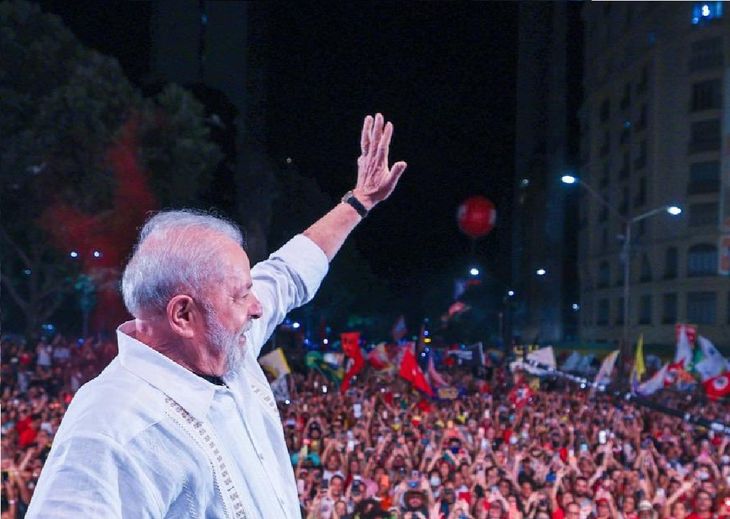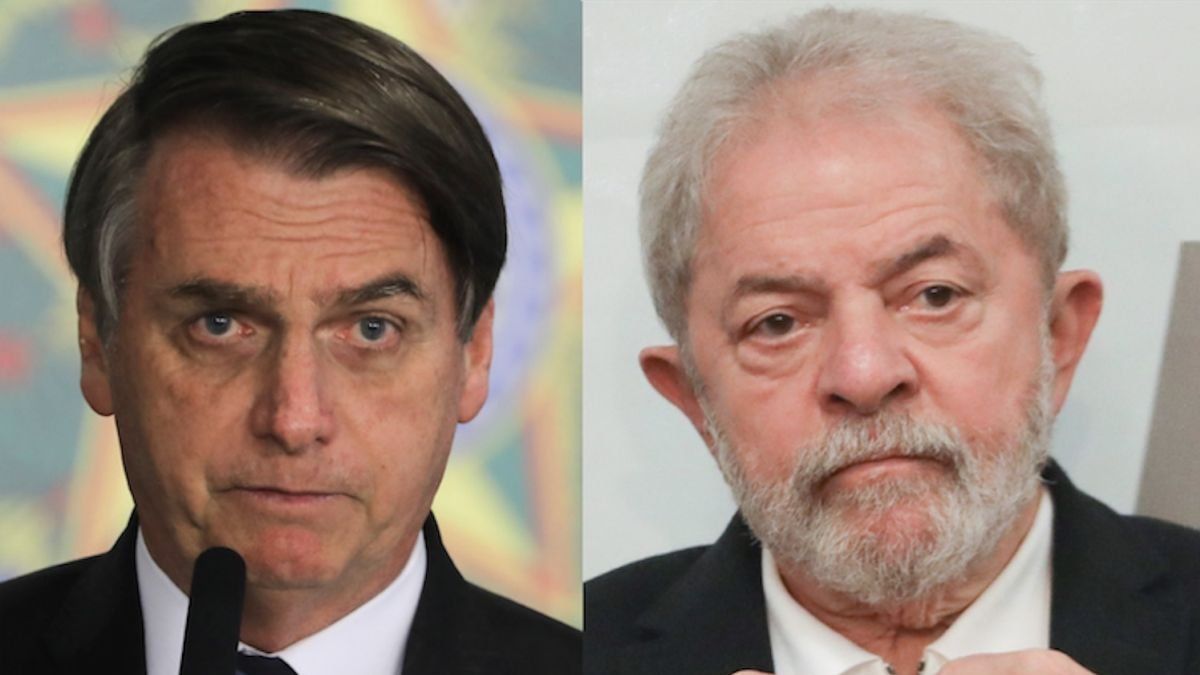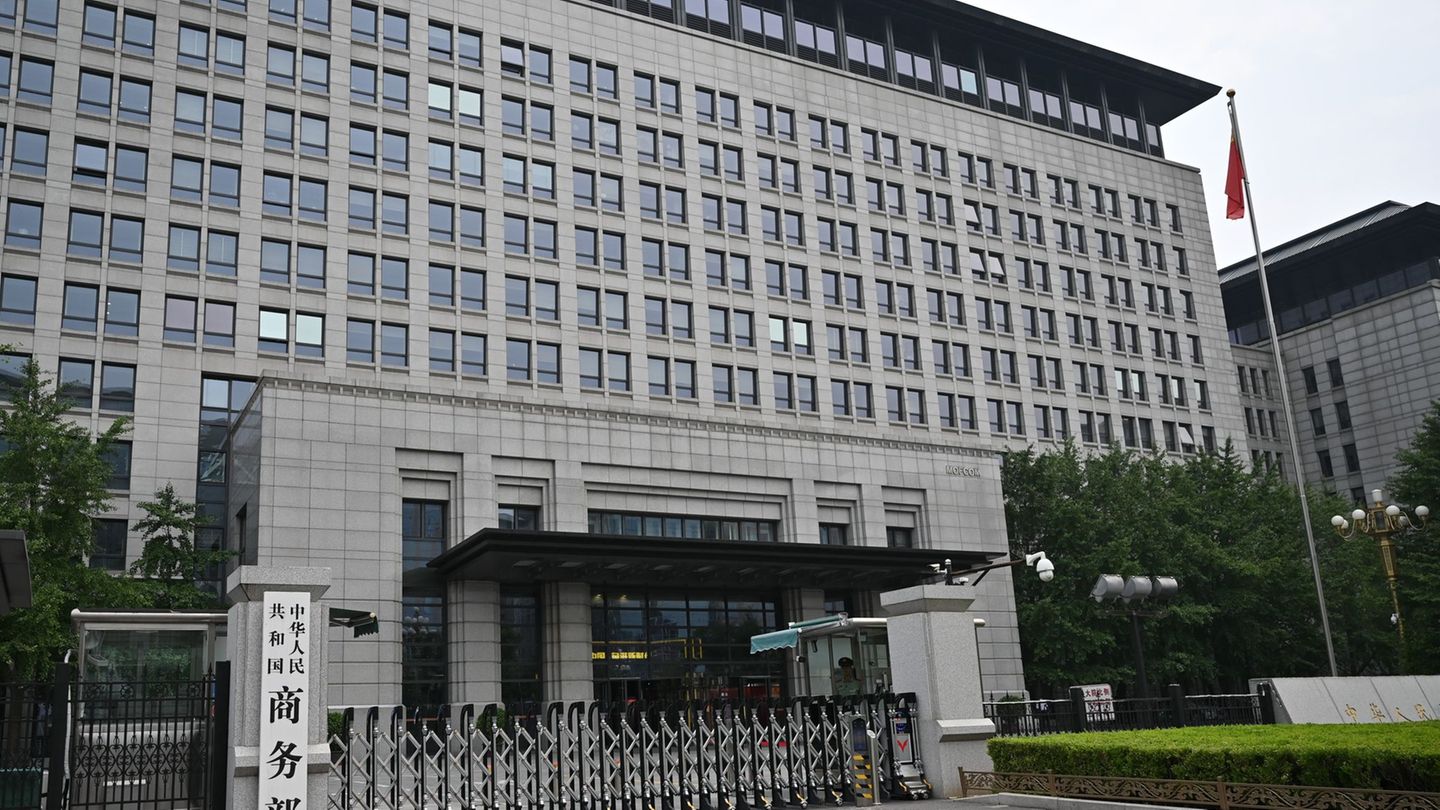In the first round of the 2018 elections, the participation rate approached 80 percent. Citizens who do not participate and cannot justify their absence risk paying a fine.
According to a survey carried out by the Ipec Agency, Lula Da Silva, top leader of the Workers’ Party (PT), has 48% voting intention ahead of the elections in Brazil, while Jair Bolsonaro escorts him with 31% as head of the Liberal Party (PL).
Elections in Brazil Jair Bolsonaro
The president of Brazil, Jair Bolsonaro, at a campaign event.
Photo: JOSEMAR GONÇALVES/FRAME/ESTADÃO CONTEÚDO
Elections in Brazil: What is chosen?
The Brazilians will have to elect the 513 members of the Chamber of Deputies and 27 of the 81 seats that make up the Senate. In addition, the control of the 27 territories that make up Brazil is at stake, both at the level of legislative bodies and governors.
However, much of the focus is on the presidential elections, in which Bolsonaro aspires to prolong a stage that began in 2019. His main rival, Lula, appears as favorite in the polls and already has experience in the Planalto Palace (2003-2010).
After three failed attempts at presidential elections, Lula Da Silva had his first victory in the 2002 elections, 20 years ago. The leader of the Workers’ Party (PT) he failed to obtain a majority of votes in the first round, so he won with 52.7 million votes in the second round (61.3% of the total).
The list of applicants is completed by nine other candidates, among which stand out former minister Ciro Gomes and senator Simone Tebetalthough none of them has managed to consolidate a third way, at least with the forecasts of the polls on the table.
Elections in Brazil Lula in Rio de Janeiro

Former Brazilian President Lula da Silva in Rio de Janeiro.
PHOTO: @ricardostuckert
Elections in Brazil: Second round?
Elections always take place on the first Sunday in October and, should a second round be necessary, it will take place on the last Sunday of the month (on the 30th in the case of the current process).
This double-round system is contemplated only for the elections for governor and president and forces a choice between the two candidates with the most votes. in the event that no candidate obtains half plus one of the votes valid in the first round.
With the aim of being the winner in the first round, Lula aspires to the “helpful vote”that is, the voters of other candidates: Ciro Gomes, leader of the Labor Partyis the third candidate, with an intention to vote of 7% according to the largest number of polls.
lula and Bolsonaro.jpg

Elections in Brazil: What will the transfer of mandate be like?
Brazil has a system of electronic ballot box that speeds up the count and that will predictably allow the winner of this Sunday’s presidential elections to be known in a matter of hours. Nevertheless, his investiture will still be delayed by almost three monthssince traditionally the transfer of powers takes place in Brazil on January 1.
The parliamentary renewal will take place at the end of that same month, since the current legislature in the Chamber of Deputies ends on January 31, 2023.
Source: Ambito
David William is a talented author who has made a name for himself in the world of writing. He is a professional author who writes on a wide range of topics, from general interest to opinion news. David is currently working as a writer at 24 hours worlds where he brings his unique perspective and in-depth research to his articles, making them both informative and engaging.




